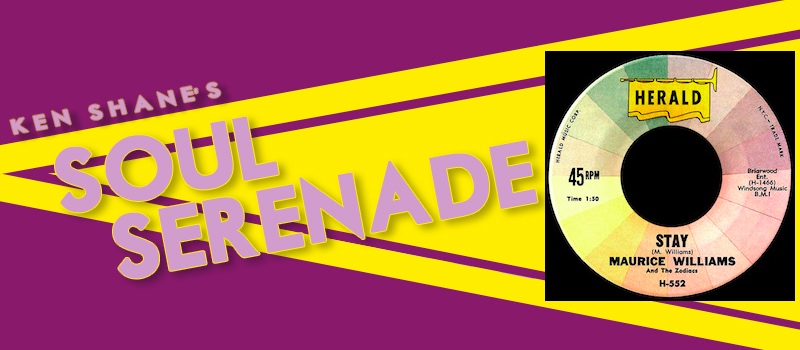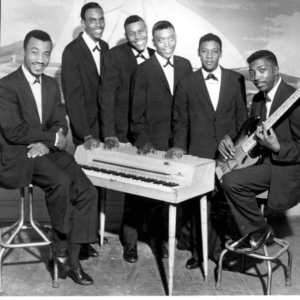 Most baby boomers have a fond memory of Jackson Browne’s live recording of “Stay” from his 1977 album Running on Empty. The cover version was tacked on to the end of Browne’s song “The Load Out,” and featured sideman David Lindley’s falsetto encouraging the audience to “stay” for one more song. When this version of “Stay,” without the “Load Out” preamble, was released as a single it rose all the way up to #20 on the Pop chart. If memory serves me well, the track listing on the album including an “apology to Maurice Williams and the Zodiacs.”
Most baby boomers have a fond memory of Jackson Browne’s live recording of “Stay” from his 1977 album Running on Empty. The cover version was tacked on to the end of Browne’s song “The Load Out,” and featured sideman David Lindley’s falsetto encouraging the audience to “stay” for one more song. When this version of “Stay,” without the “Load Out” preamble, was released as a single it rose all the way up to #20 on the Pop chart. If memory serves me well, the track listing on the album including an “apology to Maurice Williams and the Zodiacs.”
Perhaps the apology wasn’t necessary but I’m sure the name-check was appreciated, since it was Williams and his group who recorded the original version of “Stay” in 1960. Williams was born in South Carolina and began his singing career in church at age six. He formed a group called the Junior Harmonizers, but the members were more interested in secular music, and soon changed their name to the Royal Charms.
The Royal Charms, which included Williams, Earl Gainey, Willie Jones, William Massey, and Norman Wade, were still high school students when they got an opportunity to travel to Nashville to record for Excello Records. Excello was owned by a guy named Ernie Young who thought that the Gladiolas would be a better name for the group. This despite the fact that there were at least two other groups performing with that name at the time.

The Gladiolas recorded a song called “Little Darlin’,” and while it was a #11 hit on the R&B chart, it failed to cross over to Pop chart success. It failed that is until a Canadian group called the Diamonds covered it and their record raced up to #2.
The story is told that the Gladiolas became the Zodiacs when their car broke down while they were on tour, and they found a British car called the Zodiac. And so, Maurice Williams and the Zodiacs were born. Earl Gainey wouldn’t be part of it though. He left the group and was replaced by Henry Gatson. In early 1959 the group dissolved completely but reformed with new members Wiley Bennett, Charles Thomas, Little Willie Morrow, and Albert Hill joining Williams and Gatson.
It was that lineup that entered the recording studio, really just a hut on the side of a South Carolina road, in the summer of 1959. They recorded several demos in search of that elusive hit. Finally, near the end of the session, they recorded a song that Williams had written back in 1953 in hopes of getting his then-girlfriend to linger a little longer. That song was “Stay” and it made them immortal.
There wasn’t much interest in the demo of “Stay” at first. It was turned down by several producers in New York City. Then a guy named Al Silver heard it. Silver owned Herald Records, and he heard the song’s potential. He agreed to release it as a single if the group would re-record it, because the levels on the demo were too low. They would also have to remove the lyrics “let’s have another smoke” is they wanted it played on the radio.
According to Silver’s wishes, “Stay” was re-recorded by Williams and his Zodiacs, and Silver released it on his Herald label on October 9, 1960. By November 21, it was #1 on the Billboard Hot 100. Clocking in at 1:36, it was the shortest single to ever claim the top spot. It probably would have remained atop the chart longer, but Elvis Presley’s “Are You Lonesome Tonight” knocked it from its lofty perch. Thirty years later, “Stay” had sold eight million copies.
It is said that the early Beatles included “Stay” in their live sets, but there is no recorded evidence of that. It is indisputable however that the Four Seasons turned “Stay” into a hit all over again in 1964. Maurice Williams and the Zodiacs weren’t done yet though. In 1965 they had another million-seller with “May I.”
Maurice Williams continued to record and tour for many years, and is still active in music today. He now lives in North Carolina, and he was inducted into that state’s Music Hall of Fame in 2010.





Comments